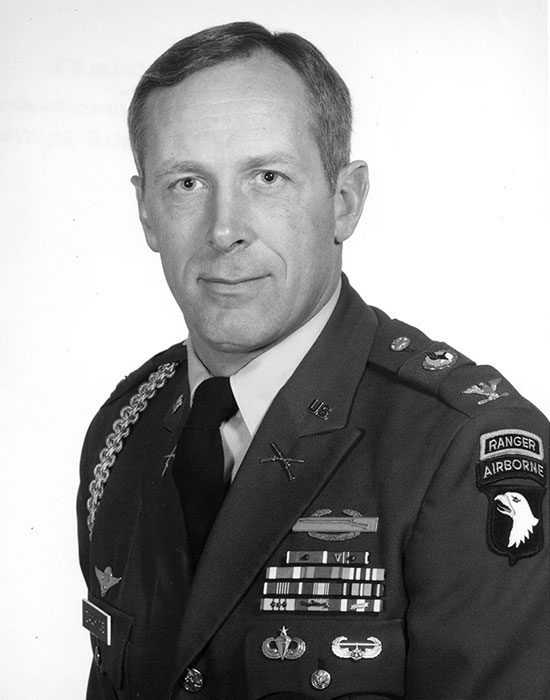Commissioned upon graduating from West Point in 1959, Pete’s first three years, while technically on active duty, were spent as a full-time student in England at Oxford University. In the fall of 1962, having completed his tenure as a Rhodes Scholar, Pete returned to the United States to begin his military career in earnest.
After finishing Infantry, Parachute and Ranger training, Pete was posted to the 82nd Airborne Division where he commanded a Rifle Company.
Following further training, including Vietnamese language school, Pete was deployed to Vietnam as Senior Advisor to the Vietnamese 1st Airborne Battalion, and subsequently worked in the Pacification Program.
The final decade of Pete’s military career witnessed a series of commands toward becoming a General Officer, including: a Battalion in Korea, a Brigade at Fort Ord, followed by assignment as Assistant Division Commander of the 7th Infantry Division. Then, Pete was selected to command the 3rd Brigade (“War Eagle” Brigade) in the 101st Airborne Division (Air Assault), followed by assignment as the Division Chief of Staff.
After his promotion to Brigadier General, Pete’s final posting was in the Pentagon as the Army’s Deputy Director of Strategy, Plans and Policy.


